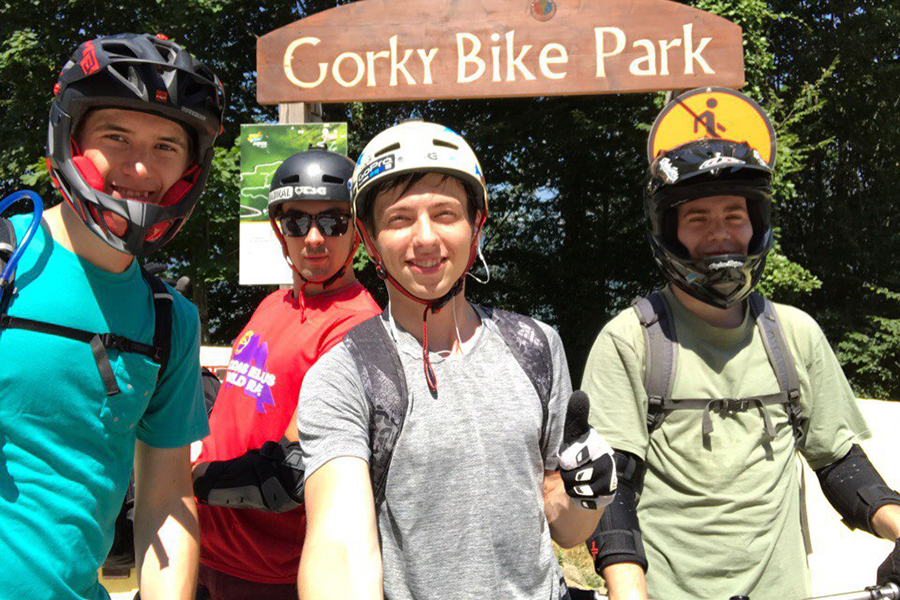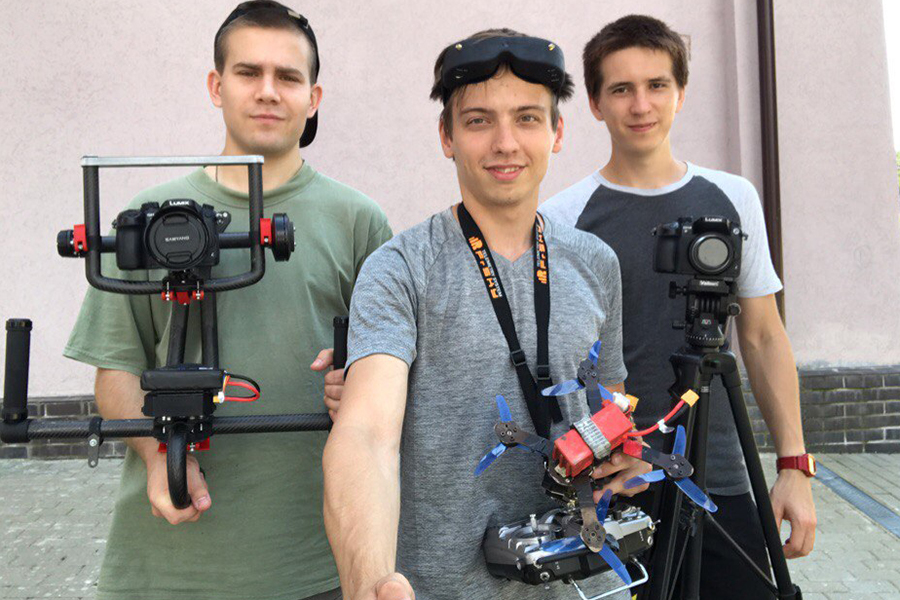Engineer of the Department of physics of micro- and nanosystem MEPhI Vladimir Voronin is engaged in video and photography, and creation of equipment for its implementation. Together with his team SKYRIS he has developed a device that corrects the image defect in photos and video. Now the project is at the stage of release of the first lot. In addition, Vladimir is actively involved in the drones racing, and in November will represent our country at the European Championship.
Vladimir told about the Rolling Shutter defect, training courses for pilots of unmanned aerial vehicles and why it is necessary to invest in education.
- Vladimir, what projects do you work on?
- I represent a team SKYRIS, a project Global Filter. This device, which eliminates the defects of the image in video cameras, improving video quality, reducing cost of post-production and equipment necessary to implement the shooting process. In other words, we make the $1000 camera which is like the one that costs over $10000. Also it reduces the cost of post-processing – you will not have to remove the extra frames and remove the defect in the video, as it is completely absent.
-For whom is this device?
- First and foremost, development is necessary for those who shoot action videos. For a start, we have identified our target audience as amateurs and professionals who are engaged in commercial shooting of action videos using SLR and mirrorless cameras. While shooting fast moving objects there is the rolling shutter defect (distortion of the image due to the displacement of the object during row-by-row reading of the image matrix), which is very difficult to fight with. Until today, there was not a universal solution that resolves this defect on cameras with CMOS matrixes, which are most often used by videographers. We use such cameras ourselves for a long time and suffered because of the rolling shutter, when made dynamic images.
- How long have you been shooting?
- We have shooting from land and air more than four years. There is a variety of associated equipment, mostly homemade, about which we will feel the least sorry, because we shoot not weddings, but activity, extreme. For example, recently our team went to Italy for the World Championship in Cycling 4X. This discipline is included in the Olympic sports. We filmed a video about our athlete, 12-fold champion of Russia.

Engineer of the Department of physics of micro- and nanosystem MEPhI Vladimir Voronin is engaged in video and photography, and creation of equipment for its implementation. Together with his team SKYRIS he has developed a device that corrects the image defect in photos and video. Now the project is at the stage of release of the first lot. In addition, Vladimir is actively involved in the drones racing, and in November will represent our country at the European Championship.
Vladimir told about the Rolling Shutter defect, training courses for pilots of unmanned aerial vehicles and why it is necessary to invest in education.
- Vladimir, what projects do you work on?
- I represent a team Scyris, a project Global Filter. This device, which eliminates the defects of the image in video cameras, improving video quality, reducing cost of post-production and equipment necessary to implement the shooting process. In other words, we make the $1000 camera which is like the one that costs over $10000. Also it reduces the cost of post-processing – you will not have to remove the extra frames and remove the defect in the video, as it is completely absent.
-For whom is this device?
- First and foremost, development is necessary for those who shoot action videos. For a start, we have identified our target audience as amateurs and professionals who are engaged in commercial shooting of action videos using SLR and mirrorless cameras. While shooting fast moving objects there is the rolling shutter defect (distortion of the image due to the displacement of the object during row-by-row reading of the image matrix), which is very difficult to fight with. Until today, there was not a universal solution that resolves this defect on cameras with CMOS matrixes, which are most often used by videographers. We use such cameras ourselves for a long time and suffered because of the rolling shutter, when made dynamic images.
- How long have you been shooting?
- We have shooting from land and air more than four years. There is a variety of associated equipment, mostly homemade, about which we will feel the least sorry, because we shoot not weddings, but activity, extreme. For example, recently our team went to Italy for the World Championship in Cycling 4X. This discipline is included in the Olympic sports. We filmed a video about our athlete, 12-fold champion of Russia.

- What team is working on the project?
- The team consists of students from different Russian universities – MSU, Skoltech, MIPT, MEPhI and BMSTU. In our project there are no clearly distributed roles. We do everything together, consequently it has its pros and cons. Of course, there are no specific responsibilities, no technical specifications. However, it turns out that the responsibility is divided, so that there is no shifting. There is no such situation when anyone in particular is to be blamed that the program is not working. Each member of the team takes and immediately tries to fix it. We have five people yet. As soon as the device goes on sale, we will obviously need to hire more people. We have many plans, but guessing is not desirable – it is necessary first to release the device.
-Which useful things have Engineering Center and Business incubator given to your team?
- First of all, communications. It provided us with people who taught us all the basics of what is required to do in addition to development, led us in a startup environment. We received a vision of what to do next. We learned how to present a project to both potential clients and investors. There was a great support from the university. We received a place where we can assemble the product. In fact, this is a great achievement; we all are from different universities, they have a lot of rooms, but it was almost impossible to get there all together. In the end, we extricated ourselves – the development was carried out in dormitories – and even there it was a big headache with passes, time and transport of equipment. Also we needed a conference room, and we got it. In addition, there are sensible people who help with fresh eyes, tell us what to do and how.
- What do you expect from working with an Engineering Center in the future?
- Infrastructure, atmosphere, more interesting staff and students - we need more new thoughts and ideas.
- What would you advise beginners who have their own interesting ideas?
- To work. To work a lot. Just do it. Don't be shy, ask questions and make.
- Many people face a choice – to go to work or start own business. What advice would you give them?
- The more you work on yourself, the more you will be able to receive in the future. It's never too late to go to work for someone else. At some point you realize that you have a vacation one month per year, you work every day, you know what will happen tomorrow. While you are a student and you have no burden of family and permanent employment, I think you must work on yourselves. You can get a scholarship, to turn a penny. It is wrong to work all day long, because you ruin your education. So if there is no urgent need for sustenance, while it is possible, it is necessary to invest in yourself.





